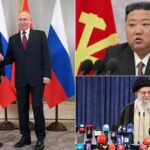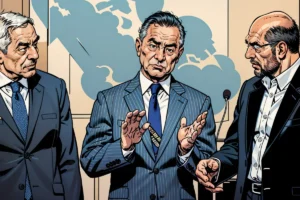Former Pakistan prime minister Imran Khan was disqualified on Friday (Oct 21) from running for political office for five years, after the country’s election commission ruled that he misled officials about gifts he received from foreign leaders while in power.
The decision is the latest twist in political wrangling that began even before Khan’s Apr 10 ouster, and is one of several legal battles being fought by the former international cricket star and his Pakistan Tehreek-e-Insaf (PTI) party.
Dozens of his supporters attacked vehicles as they left the Election Commission of Pakistan (ECP) headquarters after the ruling, and police detained one of Khan’s security guards after he fired a shot into the ground.
In the eastern city of Lahore, his supporters blocked some roads, while in Faisalabad, they used burning tyres to stop traffic.
On Twitter, Islamabad police said security in the capital was on “high alert”.
“The ECP has declared Imran Khan was involved in corrupt practices,” Gohar Khan, one of his lawyers, told AFP, adding that he had been disqualified for five years.
“We are going to challenge it in the Islamabad High Court right now.”
Pakistan’s courts are often used to tie up lawmakers in long-winding proceedings that rights monitors criticise for stifling political opposition, but the commission’s involvement in this case stems from the obligation of elected officials to declare all their assets.
“In our opinion, the Election Commission of Pakistan is not a court, therefore they can’t give a declaration to disqualify anyone,” PTI senator Syed Ali Zafar, a barrister representing Khan, told a press conference Friday ahead of the ruling.
The case centres on a government department known as “Toshakhana”, which during the Mughal era referred to the “treasure houses” kept by the subcontinent’s princely rulers to store and display gifts lavished on them.
Government officials must declare all gifts, but are allowed to keep those below a certain value.
More expensive items must go to Toshakhana, but in some cases, the recipient can buy them back at around 50 per cent of their value – a discount Khan raised from 20 per cent while in office.















